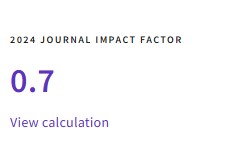Service learning in physical education: implementation model in high education
DOI:
https://doi.org/10.24310/riccafd.2020.v9i1.8307Keywords:
Physical Education, teacher training, service-learning, personal and social skills, responsibilityAbstract
The purpose of this experience is to show an implementation model for teaching methodology about Service Learning (SL) to improve the teacher training in Primary Education degree in Blanquerna Faculty of Psychology, Education and Sports Sciences. Particularly, in these paper we present the SL method to show the convenience to develop teaching skills related to learning skills, such as teamwork or innovation, and personal development skills, such as respect for social differences or community responsibility. These teaching skills are presented by the Framework for 21st Century Learning (Partnership for 21st Century Learning, 2019) and it’s strong connected with the mission that the university must develop in relation to responsibility and social commitment. This experience focuses on students from the compulsory subject "Education through body and movement", for all student in 1st year. They design didactic Physical Education proposals with inclusive and cooperative principles, both from their theoretical and practice foundamentation. The activities design is supervised by university and the institution which receives service: Institut Guttmann hospital. Finally, these activities are implemented in the hospital facilities with ordinary primary schools and children with poor mobility (wheelchair) and some functional diversity. The conclusions and evaluations SL from university students are positive, thus offering an enriching experience to improve our future teachers personality and professionalism.
Downloads
Metrics
References
Puig JM, Campo L. El aprendizaje servicio, una propuesta innovadora para trabajar con la comunidad. Aula de innovación educativa. 2015; 245: 47-51.
Puig JM, Batlle R, Bosch C, Palos J. Aprenentatge servei. Educar per a la ciutadania [internet] 2006. Disponible en: http://www.aprenentatgeservei.org/intra/aps/documents/Llibre%20Educar%20per%20la%20ciutadania.pdf
Capella C, Gil J, Martí M. La metodología del aprendizaje-servicio en la educación física. Apunts. Educación Física y Deportes. 2014; 116: 33-43.
Campo L. L’aprenentatge servei a la universitat com a proposta pedagògica. En Martínez M. Aprenentatge servei i responsabilitat social de les universitats. Barcelona: Octaedro y Fundación Jaume Bofill. 2008.
Ruiz-Corbella M, García-Gutiérrez J. Aprendizaje-Servicio. Los retos de evaluación. Madrid: Narcea. 2019.
Pérez S, Solà J, Sebastiani EM, Arranz X, Campos J, Giné M, Sánchez J. El aprendizaje servicio en el Grado en Ciencias de la Actividad Física y Deporte. En Rubio L, Campo L, Sebastiani EM. Aprendizaje Servicio y Educación Física. Barcelona: INDE. 2014: 91-100.
Zabala A, Arnau L. 11 ideas clave: cómo aprender y enseñar competencias. Barcelona: Graó. 2007.
Zabala A, Arnau L. Métodos para la enseñanza de las competencias. Barcelona: Graó. 2014.
Chiva O, Pallarés M, Gil J. Aprendizaje-servicio y mejora de la Personalidad Eficaz en futuros docentes de Educación Física. Revista Complutense de Educación [Internet] 2018; 29(1): 181-197. Disponible en: http://dx.doi.org/10.5209/RCED.52164
Rubio L, Campo L, Sebastiani EM. Aprendizaje servicio y Educación Física. Experiencias de compromiso social a través de la actividad física y el deporte. Barcelona: INDE. 2014.
Chiva O, Capella C, Pallarés M. Investigación-acción sobre un programa de aprendizaje-servicio en la didáctica de la educación física. Revista de Investigación Educativa [Internet] 2018: 277-293. Disponible en: http://dx.doi.org/10.6018/rie.36.1.270581
Ruiz-Montero PJ, Chiva-Bartoll O, Rivera-García E. (2016). Aprendizaje- servicio en los grados universitarios de Educación Física: Ejercicio físico con personas mayores. Ágora para la Educación Física y el deporte. 2016; 18(3): 244-258.
Puig JM. 11 Ideas Clave. ¿Cómo realizar un proyecto de Aprendizaje Servicio?. Barcelona: Graó. 2015.
Partnership for 21st Century Learning. Arizona, EEUU: Battelle for kids [Internet] 2019. Disponible en: http://www.battelleforkids.org/networks/p21/frameworks-resources
Downloads
Published
How to Cite
Issue
Section
License
All the contents published in Revista Iberoamericana de Ciencias de la Actividad Física y el Deporte are subject to the Creative Commons Reconocimento-NoComercia-Compartirigual 4.0 license, the full text of which can be found at <http://creativecommons.org/licenses/by-nc-sa/4.0>
They may be copied, used, disseminated, transmitted and publicly exposed, provided that:
The authorship and original source of your publication (Journal, editorial and URL of the work) are cited.
They are not used for commercial purposes.
The existence and specifications of this use license are mentioned.

Copyright is of two kinds: moral rights and patrimonial rights. Moral rights are perpetual, inalienable, inalienable, inalienable, inalienable and imprescriptible prerogatives.
In accordance with copyright legislation, Revista Eviterna recognizes and respects the moral rights of the authors, as well as the ownership of the economic right, which will be transferred to the University of Malaga for dissemination in open access.
The economic rights refer to the benefits obtained by the use or disclosure of the works. Revista Iberoamericana de Ciencias de la Actividad Física y el Deporte is published in open access and is exclusively authorized to carry out or authorize by any means the use, distribution, disclosure, reproduction, adaptation, translation or transformation of the work.
It is the responsibility of the authors to obtain the necessary permissions of the images that are subject to copyright.
















9.png)
